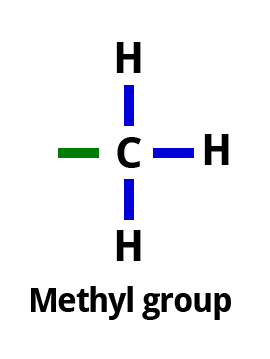
Methylation
Why are you blogging about methylation?
Well, as it turns out, I have major genetic flaws in methylation which explain (but don’t excuse) some of my lifelong physical and mental problems. This is a big topic now in Integrative Medicine with new information every year.
Hmmm … can you explain a little more?
Sure. Methylation is a biochemical term. A “methyl group” is a simple structure, a carbon atom with three hydrogen atoms attached. The process of “methylation” takes place on a molecule, for example, the B vitamin folic acid. One of the hydrogen atoms on folic acid is removed and a methyl group attached. Simple.
Ok, What does that do?
Well, methylation activates the molecule much like an on/off switch. Methylation causes things to happen.
Give me examples.
Methylation is necessary for:
- The production of glutathione, the major antioxidant in the body.
- The production of energy.
- The production of neurotransmitters (brain chemicals) such as dopamine and serotonin.
- The production of T-cells to fight infections.
- The detoxification of hormones, chemicals, and heavy metals.
- The repair of DNA and cells damaged by free radicals.
So that means you can’t do all those things very well?
In my genes, I have several major double mutations and many minor single mutations: genetic flaws in the ability to methylate. This can lead to hundreds of different diseases including my problems: memory loss, brain fog, hand tremor, depression, inability to enjoy things, Raynaud’s, and fatigue.
How do you know this?
I got curious because of a long personal and extensive family history of depression, so I had my genome sequenced. I sent off a teaspoon of saliva to 23andMe and received my genetic results. I then uploaded the report to Puregenomics and received a color-coded methylation report. Further research with the help of the book The 85% Solution: MTHFR is Overpowering Our Medical System by Dan Purser and other online resources brought me up to speed.
Is this common?
Yep, as the title of the above book says, 85% of those born of Northern European descent have genetic flaws in methylation, some mild, some severe. You probably have many genetic mutationsyourself but your doctor will not test you nor would he know what to do with the results. You are on your own until genetic testing becomes widely accepted in the medical field. Ideally you would go to a specialist who tests your genes, measures all the nutrients, vitamins, minerals, and fatty acids in your body, and counsels you at length with a detailed but understandable report and plan of action. Annual “complete” physicals should do this but insurance doesn’t pay for it and it is too time consuming for most physicians.
Side musing: I have considered this as a retirement job, seeing one patient per day, half of my day spent interpreting the test results and writing the reports while the other half in counseling. In my model, I would also use patients as “peer educators”. Who better to connect with a patient than someone successfully dealing with the same problem? Group sessions at night.
What do you mean by mutation?
We have thousands of genes that control everything in our body. They come in pairs, one gene from your mother and one from your father. If both genes are “normal”, then that gene works fine. If one gene is abnormal and the other normal, this is called a “heterozygous” mutation. The gene may function normally or be mildly impaired. If both genes are abnormal, this is called a “homozygous” mutation. As you can guess, you are likely to have a moderate to severe problem.
What flaws do you have?
There are many genes involved in methylation. The degree of impairment depends on how many heterozygous or homozygous mutations you have. Some homozygous mutations are worse than others. Yeah, it’s complicated but smarter people have figured this out for us thus the need for a color-coded, simple report from Puregenomics or other website.
Many people have an A677T homozygous mutation. This is a biggy, but both my genes are normal so not my problem.
I have the less common but potentially worse MTHFR A1298C homozygous mutation, the MTRR A66G homozygous mutation, and eight heterozygous mutations.
Why are you using weird names like A1298C and A66G?
These are the scientific gene names. There is no better naming system. I have difficulty remembering them.
So what is wrong with A1298C?
Think I will answer that big topic in another post but leave you with Dan Purser’s quote, “Homozygous A1298C patients are my most difficult to treat. They really suffer. Most of their issues are just abject depression. Can be a lot of mental stuff.”